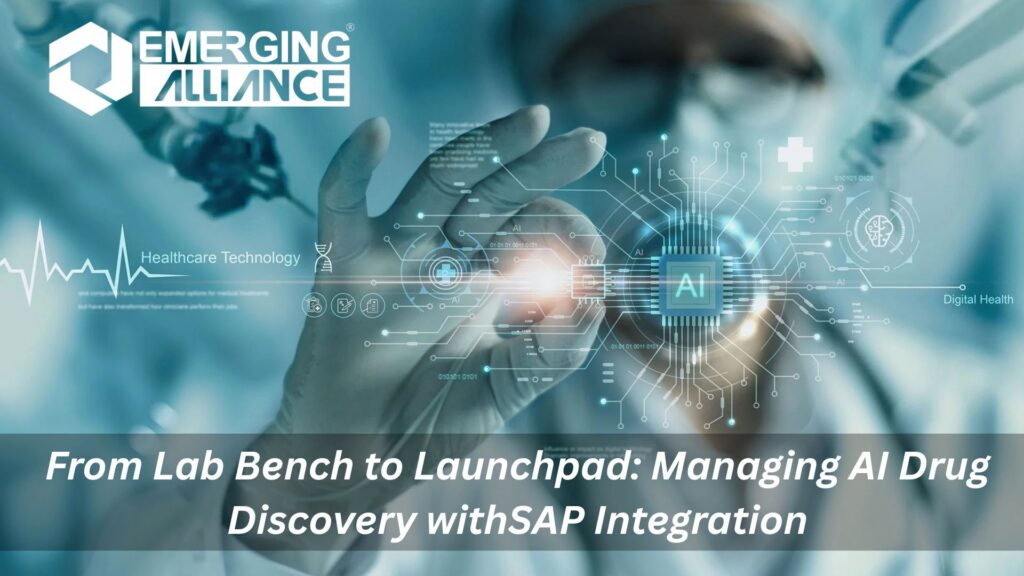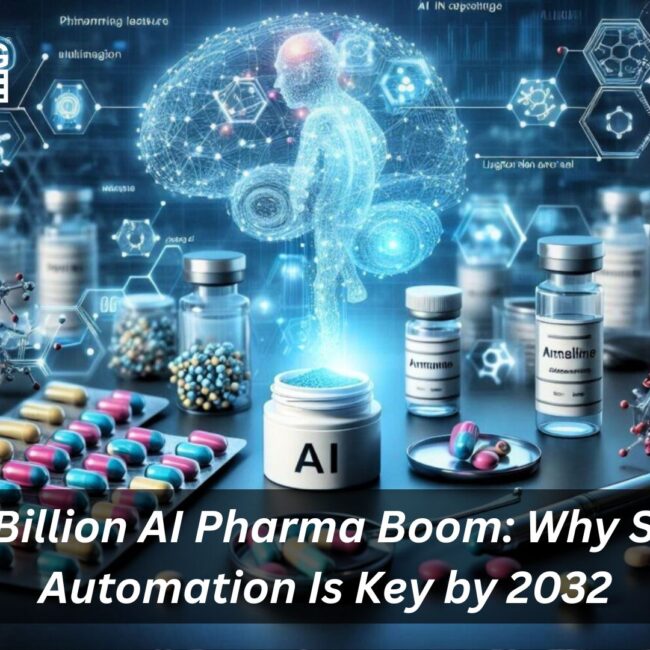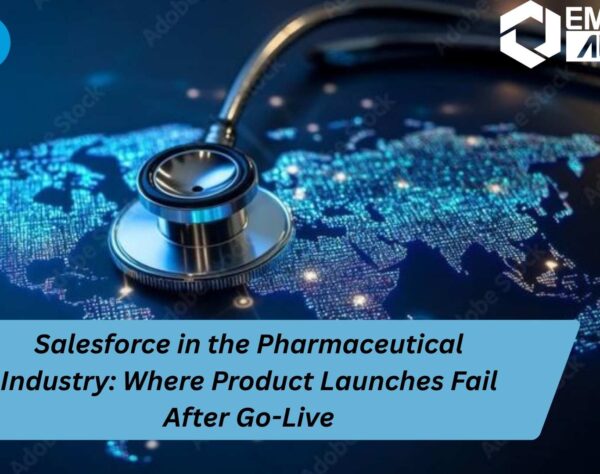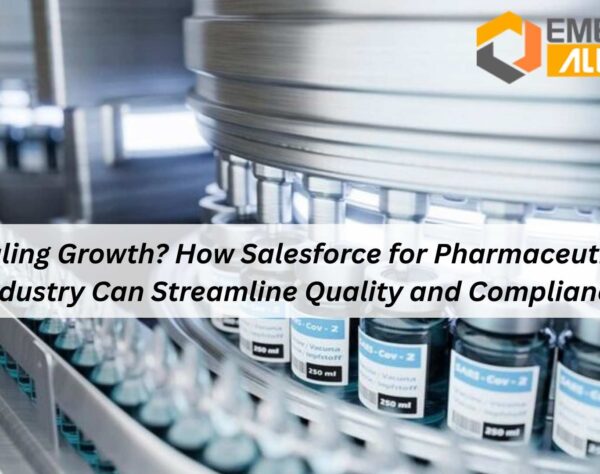
From Lab Bench to Launchpad: Managing AI Drug Discovery with SAP Integration

Accelerating AI Drug Discovery with SAP Integration from Lab to Launch
Artificial Intelligence (AI) is transforming drug discovery—from identifying novel compounds to simulating molecular behavior and predicting patient responses. But AI-driven insights alone aren’t enough to bring a drug to market. To move from early-stage research to scalable production, pharma companies need enterprise-level integration that ensures data continuity, compliance, and operational efficiency. This is where SAP ERP solutions—such as SAP S/4HANA, SAP Business One, and Grow with SAP—come into play, enabling pharmaceutical firms to connect AI outputs to real-world processes, accelerating the journey from the lab bench to the launchpad.
🔍 Why AI is Revolutionizing Drug Discovery
AI algorithms today can:
- Analyze millions of compounds in minutes
- Identify drug-target interactions through deep learning
- Predict toxicity and bioavailability early
- Optimize clinical trial design
- Shorten development cycles by years
But integrating these insights into the broader drug development lifecycle—regulatory workflows, manufacturing, inventory, quality control—is where ERP systems like SAP become essential.
🔗 The Power of SAP Integration in AI-Driven Drug Discovery
✅ 1. Centralized Data Management
SAP provides a unified data layer where R&D teams, regulatory managers, and production units can access real-time data—ensuring consistency between AI predictions and execution workflows.
✅ 2. Compliance-Ready Documentation
SAP ensures every stage of drug development—raw material sourcing, lab testing, formulation, batch processing—is logged and GxP compliant, a critical requirement for regulatory approval.
✅ 3. Real-Time Collaboration Across Departments
With SAP Fiori dashboards and embedded analytics, different teams can collaborate using AI insights—whether in formulation optimization, clinical packaging, or scalability assessment.
✅ 4. Integrated Batch and Quality Control
AI may select a promising compound, but SAP ensures its scale-up is tracked through batch traceability, automated QC workflows, and electronic records.
✅ 5. Faster Tech Transfer to Manufacturing
Once a drug candidate is validated, SAP simplifies the transition to production by managing BOMs (Bill of Materials), recipes, equipment calibration, and compliance trails.
🧬 Real-World Example of SAP implementation (Hypothetical)
A biotech startup uses an AI tool to identify a new oncology compound.
They integrate the AI platform with SAP S/4HANA to:
- Link compound metadata to sourcing workflows
- Plan clinical batch production
- Automate GxP documentation
- Monitor trial logistics through SAP analytics
The result? Time-to-trial is reduced by 40%, and compliance efforts are cut in half.
💡 Why SAP is the Right Fit
| SAP Solution | Ideal For | Key Use |
|---|---|---|
| SAP S/4HANA | Large enterprises | Full-scale integration of AI, compliance, manufacturing |
| SAP Business One | SMEs and biotech startups | Lightweight R&D and batch management with AI plugin support |
| Grow with SAP | Mid-size pharma firms | Cloud-native, scalable, and quick-to-deploy with AI-readiness |
📈 Future Outlook: AI + SAP in Drug Development
By 2030, it’s expected that:
- 60% of drug discovery workflows will include AI
- 75% of leading pharma companies will use AI-integrated ERP systems
- AI + ERP integration will become a regulatory expectation for data traceability
The future of pharma isn’t just digital—it’s intelligent and integrated.
Conclusion
AI is revolutionizing drug discovery—but SAP integration is what turns insights into real, scalable outcomes. From lab to launch, SAP ensures speed, compliance, and control, making it the backbone of intelligent pharma innovation.
Also read, similar articles that interests you on SAP for Pharma Industry.
FAQs
1. How does SAP support AI-driven drug discovery?
SAP connects AI outputs with real-world operations—handling data, compliance, manufacturing, and batch tracking.
2. Which SAP solution is best for AI in pharma?
For large enterprises: SAP S/4HANA; for startups/SMEs: SAP Business One; for mid-sized firms: Grow with SAP.
3. Can SAP integrate with AI platforms used in R&D?
Yes. SAP supports integration with external AI tools and databases via APIs, middleware, and SAP BTP.
4. How does SAP ensure regulatory compliance in AI-based drug development?
It provides automated GxP workflows, audit trails, and electronic batch records that comply with FDA and EMA standards.
5. Does SAP help in tech transfer from lab to manufacturing?
Yes. SAP manages BOMs, recipes, formulations, and equipment tracking, enabling smooth tech transfer.
6. What are the benefits of SAP integration in clinical trials?
It improves logistics, monitors trial material usage, and automates documentation and batch control for compliance.
7. How does SAP enhance data accuracy in AI workflows?
SAP ensures centralized, real-time data access and traceability, which improves AI model accuracy and reliability.
8. Is SAP Business One suitable for biotech startups using AI?
Yes. It offers lightweight, customizable features for inventory, batch management, and regulatory tracking.
9. What role does Grow with SAP play in AI pharma integration?
Grow with SAP offers a quick-deploy, cloud-native ERP tailored for scaling AI-enabled drug development processes.
10. Why is SAP critical for bringing AI-discovered drugs to market?
Because it ensures AI insights are executed through compliant, scalable, and trackable processes across the value chain.
💡 Ready to transform your Pharma Industry Operations with various SAP systems? Contact us today!







